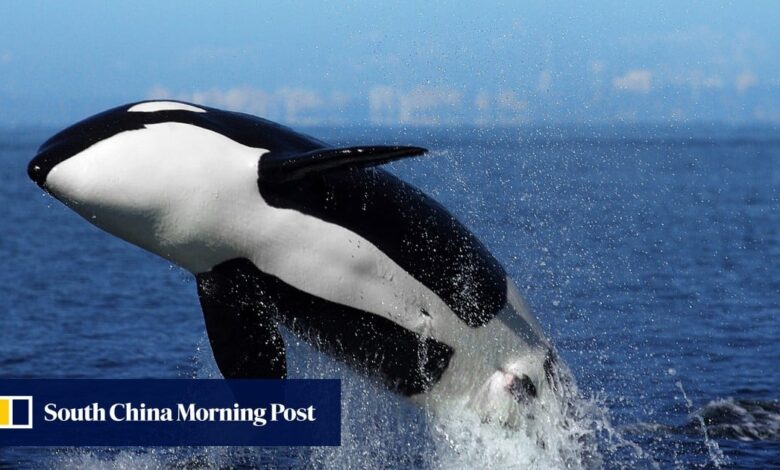Great white sharks fled to avoid being hunted by liver-eating killer whales

For years, great white sharks were turning up dead on South Africa’s False Bay and Gansbaai shores missing something crucial – their livers.
Killer whales had been extracting the sharks’ livers with chilling precision, killing them in the process.
Then, the sharks stopped washing ashore. They stopped swimming near those shores – some of their most well-known South African habitats – altogether. They were just gone.
People worried that overfishing of both the food the sharks eat and the sharks themselves may have killed off large swathes of the population.
In a first, video captures orcas hunting great white sharks
In a first, video captures orcas hunting great white sharks
By following reports of human-shark incidents, scientists determined that the South African shark populations had shifted east, to places like Algoa Bay and the KwaZulu-Natal coastline.
“We know that predators have a huge influence on the movement and habitat use of their prey, so this isn’t really surprising,” Jewell told Hakai Magazine.
The tourism industry in Gaansbi, South Africa relied on the large population of great white sharks found in the area.
Through a process of elimination, the scientists looked at the leading possible explanations including prey decline in the region where the sharks disappeared to rapid reproduction in the areas where a large number of new shark sightings were reported.
Ultimately, the scientists concluded that the most likely explanation is that the great whites fled to avoid continued killer whale attacks. Their conclusion is supported by white shark behaviour in other parts of the world, the study detailed.
In North America, for example, at the Southeast Farallon Islands great white sharks have been recorded fleeing from hunting areas after killer whales showed up.
Though many people think of the great white as an apex predator, this study is a prime example of the saying, “There’s always a bigger fish”.
“The indirect effect of predation (or the fear of predation) profoundly influences animal behaviour,” the study stated.





